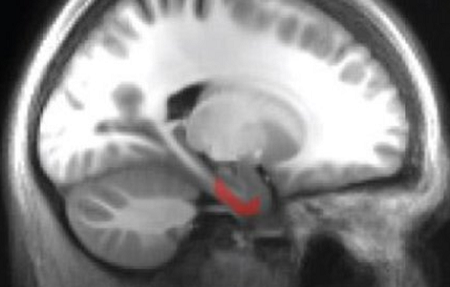Scientists Find Brain Cells Responsible for Imagination in Humans

Previous research in animal models and humans suggested that grid cells in a region of the brain called the entorhinal cortex play an important role for updating self-location during actual or virtual navigation. Whether these cells also play a role in navigation during imagination has not been determined. Using an imaging technique called functional magnetic resonance imaging (fMRI), researchers from the University College of London revealed that grid cells are also active even when healthy human volunteers are only imagining that they are navigating through an environment. The study showed that grid cells in the entorhinal cortex create an internal hexagonal grid-like coordinate system to help us remember our locations and navigate during imagination. Although the authors of the paper did not focus on the implications to disorders with deficits of memory and goal-directed imaginings, the entorhinal cortex is one of the first regions affected by Alzheimer’s disease. Loss of grid cells in Alzheimer’s disease makes it challenging for patients to visualize and remember scenes. This new structural and functional link may not only explain why Alzheimer’s patients have difficulties with imageries, but also implicates grid cells for the first time in movement of viewpoint within imageries during planning and futuristic thought processes rather than just realistic spatial navigation and memory. This human-focused research study illustrates how a non-invasive technique can advance our understanding of human neurological functions in ways not possible in animal model studies.
References
- Aidan J. Horner, James A. Bisby, Ewa Zotow, Daniel Bush, Neil Burgess. Grid-like Processing of Imagined Navigation. Current Biology, 2016; DOI: 10.1016/j.cub.2016.01.042







